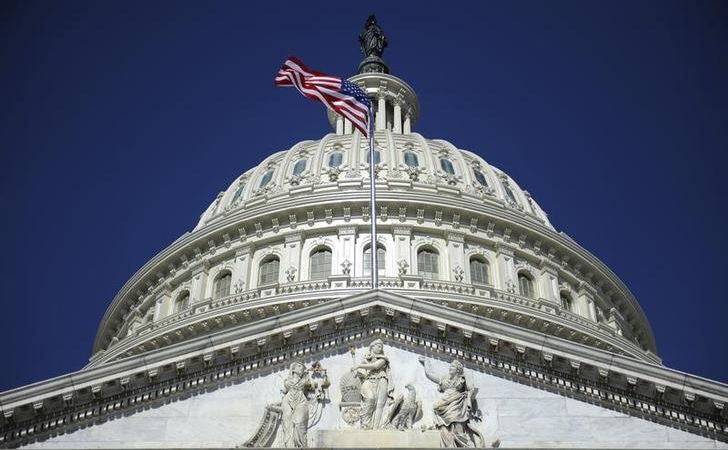Joe Calianno is a Tax Partner in the National Tax Office and serves as BDO’s International Technical Tax Practice Leader. He also is a former Special Counsel to the Deputy Associate Chief Counsel (International) in the office of Chief Counsel for the Internal Revenue Service (IRS). Additionally, Mr. Calianno is a member of the AICPA’s Tax Executive Committee, and previously served as the chair of the AICPA’s International Tax Technical Resource Panel, and as chair of the ABA’s Foreign Activities of U.S. Taxpayer’s Committee.
Mr. Calianno answered the following questions for BEPS Global Currents on December 6, 2018 regarding the (i) Section 956 proposed regulations (REG-114540-18) released by Treasury on October 31, 2018 (the “Proposed 956 Regs”), (ii) Section 163(j) interest expense limitation proposed regs (REG-106089-18) released on November 26, 2018 (the “Proposed Interest Regs”), and (iii) the foreign tax credit (FTC) proposed regs (REG-105600-18) released on November 28, 2018 (the “Proposed FTC Regs”):
Q: To the extent that IRS and Treasury limit deductions for business interest expense on loans between related controlled foreign corporations (CFCs), this could lead to a higher GILTI inclusion for the U.S. shareholder under Section 951A. Can you briefly discuss the election in the Proposed Interest Regs to apply an alternative method to avoid income tax mismatches?
A: It should be noted that the general rule in the Proposed Interest Regs (i.e., Prop. Reg. 1.163(j)-7(b)(2)) is that Section 163(j) applies to determine the deductibility of a CFC’s business interest expense in the same manner as those provisions apply to determine the deductibility of a domestic C corporation’s business interest expense. However, Treasury recognized in the Proposed Interest Regs that interest payments from one CFC to a related CFC may result in certain deduction and inclusion mismatches. As a result, such a mismatch could impact the U.S. shareholder’s GILTI calculations (potentially resulting in a greater GILTI inclusion). Thus, Treasury provided for an election to apply the alternative method. The alternative method introduces a complex calculation designed to avoid such mismatches and provide some relief to taxpayers.
Specifically, Prop. Reg. 1.163(j)-7(b)(3) provides an election to apply an alternative method to limit the amount of business interest expense of a CFC group member subject to the new Section 163(j) limitation to the amount of the CFC group member’s allocable share of the CFC group’s applicable net business interest expense. If the election is made, and if a CFC group has only intercompany debt within the CFC group, then the amount of the CFC group’s applicable net business interest expense is zero, and no business interest expense of any CFC group member would be subject to the new Section 163(j) limitation. The calculation becomes more complicated if there is third party debt.
It is worth noting that the Proposed Interest Regs provide several rules relating to this alternative method, including what is considered a “CFC group”, a subgroup rule for certain CFCs that conduct financial services businesses, special rules excluding CFCs that have ECI from the definition of a CFC group member (but counting them solely for purposes of determining whether another entity is part of the CFC group), rules that treat a controlled partnership as a CFC group member with the interest in the controlled partnership being treated as stock, rules relating to the election, and rules relating to the “tier-up” of excess adjusted taxable income, to name a few. Additionally, if an election is made, there can be additional considerations in determining a U.S. shareholder’s adjusted taxable income (e.g., Prop. Reg. 1.163(j)-7(d)(2))—which, generally speaking, is a very complex calculation.
Q: Why did Treasury create a separate subgroup for treatment of interest by financial entities in the Proposed Interest Regs?
A: Following up on the alternative method election provided in the Proposed Interest Regs, if one or more CFC group members conduct a financial services business (which is defined in the Proposed Interest Regs), the alternative method is applied by treating those entities as comprising a separate subgroup (the “financial services subgroup”). Treasury appears to have created this financial services subgroup rule to avoid creating a distortion in the Section 163(j) calculations, as these entities are generally highly leveraged with significant amounts of business interest income and business interest expense compared to non-financial services entities. Thus, Treasury believed that if these entities were to be included in the alternative method with entities that do not conduct a financial services business, there likely would be distortion.
Q: Will the new expense allocation and apportionment rules in the Proposed FTC Regs relating to GILTI cause an unreasonable burden for taxpayers?
A: Most corporations were hoping that Treasury would issue guidance providing that no expenses would be allocated to the GILTI category. However, after examining the changes made by the Tax Cuts and Jobs Act (TCJA; P.L. 115-97) and the legislative history relating to various provisions, Treasury concluded that the existing approach of expense allocation would be used to determine taxable income in the GILTI category. However, Treasury did provide some relief to taxpayers as it relates to the GILTI category by tying the relief to the Section 250 deduction.
Specifically, the Proposed FTC Regs provide for exempt income and exempt asset treatment with respect to income in the GILTI category that is offset by the deduction allowed under Section 250(a)(1) for inclusions under Section 951A(a) and a corresponding percentage of the stock of CFCs that generates such income. This approach generally will have the effect of reducing the amount of expenses apportioned to the GILTI category and thus potentially increasing the taxpayer’s foreign tax credit limitation in the GILTI category. Thus, this approach would potentially increase the amount of FTCs in the GILTI category that could be claimed.
This approach will result in added complexity and a greater compliance burden for taxpayers. In general, the rules in the Proposed FTC Regs relating to allocating and apportioning expenses and determining FTCs have added significantly more complexity to an already complex system. However, as it relates to GILTI and claiming FTCs, taxpayers likely will accept the added burden to be able to claim FTCs, given that Treasury’s approach to this issue is designed to reduce the amount of expenses apportioned to the GILTI category.
Treasury received numerous comments requesting that no expenses be allocated to the GILTI category and likely will receive additional comments requesting that the approach in the Proposed FTC Regs be changed so that there is no expense allocation to the GILTI category. However, given the extensive discussion in the preamble to the Proposed FTC Regs on this issue and Treasury’s rejection of a no allocation approach, I am not overly-optimistic that Treasury will change course on this issue. Nevertheless, there could be some tweaks to the approach in the Proposed FTC Regs when the final FTC regs are issued based on comments received from practitioners and taxpayers. We will have to wait and see.
Additionally, the result could change if Congress were to pass a technical correction to the TCJA providing for no expense allocation to the GILTI category.
Q: The Proposed FTC Regs allow for carryover of pre-2018 taxes allocated to the general FTC basket to the new post-2017 foreign branch income FTC basket. Is this beneficial and could this create a burden on taxpayers, who may have difficulty reassigning pre-2018 unused foreign taxes to post-2017 foreign branch category income?
A: As a starting point, Prop. Reg. 1.904-2(j)(1)(ii) provides that if unused foreign taxes paid or accrued or deemed paid with respect to a separate category of income are carried forward to a tax year beginning after December 31, 2017, those taxes are allocated to the same post-2017 separate category as the pre-2018 separate category from which the unused foreign taxes are carried. Thus, taxes in the general category basket would carry forward to the general category basket. However, Prop. Reg. 1.904-2(j)(1)(iii) provides an exception that permits taxpayers to assign unused foreign taxes in the pre-2018 separate category for general category income to the post-2017 separate category for foreign branch category income to the extent they would have been assigned to that separate category if the taxes had been paid or accrued in a post-2017 taxable year. Any remaining unused taxes are assigned to the post-2017 separate category for general category income. The exception applies only to unused taxes that were paid or accrued, and not taxes that were deemed paid with respect to dividends or inclusions from foreign corporations.
The Proposed FTC Regs require taxpayers applying the exception in Prop. Reg. 1.904-2(j)(1)(iii) to analyze general category income earned in prior years, in order to determine the extent to which the income would have been foreign branch category income under the rules described in Prop. Reg. 1.904-4(f). Unused foreign taxes in the general category arising in those prior years are then allocated and apportioned under Reg. 1.904-6 between the general category and the foreign branch category. This analysis does not require applying any other post-TCJA provisions to prior years (for example, the new expense allocation rules described in the Proposed FTC Regs would not be relevant to the analysis).
“If this election is made, there is a similar rule coordinating any separate limitation losses (SLLs), overall foreign loss (OFL), and overall domestic loss (ODL) accounts of the taxpayer, as the case may be.”
Although this exception to the general rule may create some burdens for taxpayers, it nevertheless may prevent taxpayers from potentially losing the ability to claim such foreign taxes as FTCs. This could occur if a U.S. taxpayer only generates foreign branch income. Thus, taxpayers likely would be willing to undertake the burden of reconstructing in order to be able to claim FTCs.
In the preamble to the Proposed FTC Regs, Treasury does recognize that taxpayers may face difficulties in reconstructing the allocation of unused foreign taxes and has requested comments on whether the Final FTC Regulations should include a simplified rule for taxpayers that choose to reconstruct the allocation of general category unused foreign taxes (for example, by looking to the relative amounts of foreign branch category and general category income or assets in the first post-2017 taxable year to which the unused foreign taxes are carried). It is likely that Treasury will receive comments from practitioners and taxpayers relating to simplification of the process.
It is worth noting that there are other transitional rules in the Proposed FTC Regs that taxpayers should review as it relates to the FTC.
Q: How do you think the new Proposed 956 Regs will impact U.S. shareholders?
A: Treasury discussed the legislative history of Section 956 in the preamble to the Proposed 956 Regs and noted that that the purpose of Section 956 is to create symmetry between the taxation of actual dividends paid and “effective repatriations,” by subjecting effective repatriations to tax in the same manner as actual dividends. As a result of the enactment of Section 245A in the TCJA, certain corporate U.S. shareholders who satisfy the requirements of Section 245A can take a 100% dividend received deduction (“DRD”) when they receive a dividend from their foreign subsidiaries. Thus, for these taxpayers, there would be a distortion between a Section 956 income inclusion via Section 951(a)(1)(B) and an actual dividend, because a corporate U.S. shareholder that has a Section 956 inclusion would not be eligible for the 100% DRD because such inclusion is not viewed by Treasury as an actual dividend.
To rectify this issue and create some symmetry, the Proposed 956 Regs provide that the amount otherwise determined under Section 956 with respect to a U.S. shareholder for a taxable year of a CFC is reduced to the extent that the U.S. shareholder would be allowed a deduction under Section 245A if the U.S. shareholder had received an actual dividend from the CFC. As a result, the corporate U.S. shareholder will not be subject to additional U.S. tax on the Section 956 amount. Taxpayers that do not qualify for a Section 245A deduction (e.g., an individual) will not receive any benefit from the Proposed 956 Regs.
The changes to Section 956 in the Proposed 956 Regs are proposed to apply to taxable years of a CFC beginning on or after the date of publication of the Treasury decision adopting these rules as final regulations in the Federal Register (the “finalization date”), and to taxable years of a U.S. shareholder in which or with which such taxable years of the CFC end. However, with respect to taxable years of a CFC beginning before the finalization date, a taxpayer may rely on the Proposed 956 Regs for taxable years of a CFC beginning after December 31, 2017, and for taxable years of a U.S. shareholder in which or with which such taxable years of the CFC end, provided that the taxpayer and United States persons that are related (within the meaning of Section 267 or 707) to the taxpayer consistently apply the Proposed 956 Regs with respect to all CFCs in which they are U.S. shareholders. This benefits taxpayers who qualify for the relief provided by the Proposed 956 Regs.
It is worth noting that the Proposed FTC Regs (in particular, Prop. Reg. 1.960-2(b)(1)) provide that no foreign income taxes are deemed paid under Section 960(a) with respect to an inclusion under Section 951(a)(1)(B). Thus, the approach of the Proposed 956 Regs is even more beneficial for corporate U.S. shareholders who qualify and apply the Proposed 956 Regs.
These comments represent the views of the author only, and do not necessarily represent the views or professional advice of BDO USA, LLP.
The information contained herein is of a general nature and based on authorities that are subject to change. Applicability of the information to specific situations should be determined through consultation with your tax adviser.
BDO USA, LLP, a Delaware limited liability partnership, is the U.S. member of BDO International Limited, a UK company limited by guarantee, and forms part of the international BDO network of independent member firms.
Click here for more information on our BEPS research and technology solutions to address your immediate and ongoing needs






